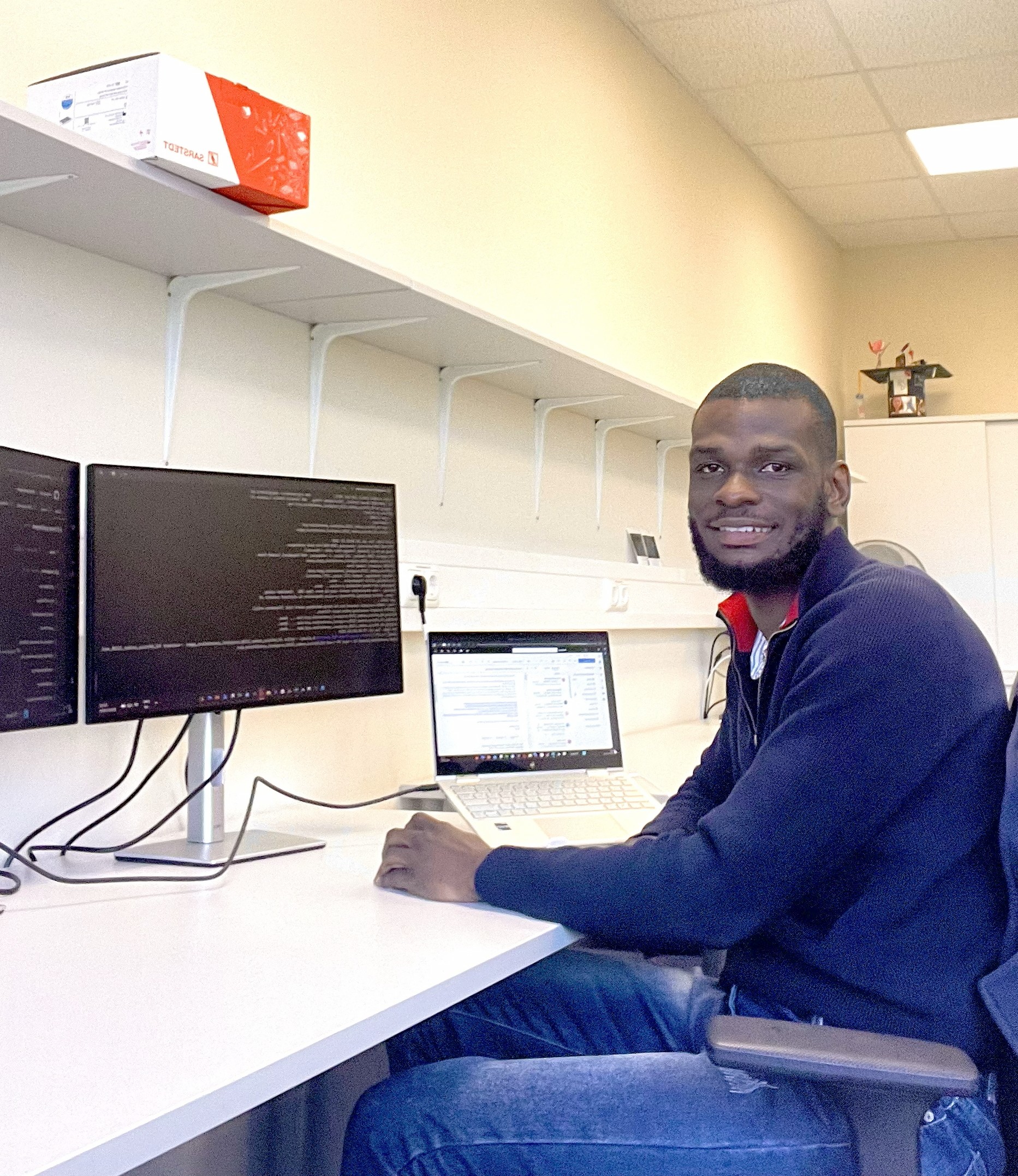Forschungsstipendiat aus Ghana an der Universität Hamburg
My name is Theophilus Afum, a PhD student at the University of Ghana, affiliated with the West African Centre for Cell Biology of Infectious Pathogens (WACCBIP). I am currently undertaking part of my PhD research at the University of Hamburg, Germany.
According to the World Health Organization, tuberculosis (TB) remains the leading cause of death by a single infectious agent, affecting both humans and animals. Over the past six years, I have worked extensively on the Mycobacterium tuberculosis complex (MTBC), focusing on pathogen behavior, drug resistance, and modes of transmission. For my doctoral studies, I am specifically investigating hostpathogen interactions that may explain the geographical restriction of Mycobacterium africanum (Maf), a member of the MTBC, to West Africa.
There is a prevailing hypothesis that M. africanum may have an animal reservoir in West Africa, suggesting possible zoonotic transmission and coevolution between the pathogen and certain human populations, possibly defined by ethnicity. To explore this, I collected sputum and blood samples from consenting TB-positive individuals and healthy household contacts. From the sputum samples, I isolated MTBC strains, extracted bacterial DNA, and performed whole-genome sequencing. Data analysis is currently ongoing.
The second component of my research involves identifying potential human genetic factors associated with susceptibility to M. africanum. For this, DNA was extracted from blood samples of both cases and controls and shipped to Germany for SNP genotyping using the H3Africa SNP array. This research bridges human genetics, pathogen genomics, and infectious disease epidemiology, aligning with the One Health framework. The project aims to address two key objectives:
1. To characterize human genomic variation using the H3Africa SNP array.
2. To identify genomic loci that mediate interactions between the human host and MTBC.
Achieving these objectives requires advanced resources and expertise in human genetics and bioinformatics. Professor Dr. Tobias Lenz at the University of Hamburg provides the ideal environment for this work, with the necessary software, established analytical pipelines, and expert supervision.
Understanding host-pathogen interactions is critical for developing improved diagnostics and control tools—such as rapid tests and vaccines—and for advancing host-directed therapies. As the global community shifts toward precision medicine and evidence-based policy, studies like mine are essential.
This research stay at the University of Hamburg is enhancing my skills in bioinformatics and human genome analysis. The knowledge I acquire here will be transferred back to Ghana, where I intend to train fellow researchers and colleagues in the One Health approach, which considers the interplay between the pathogen, the host, and the environment. Strengthening this framework is vital to achieving the global goal to End TB.

